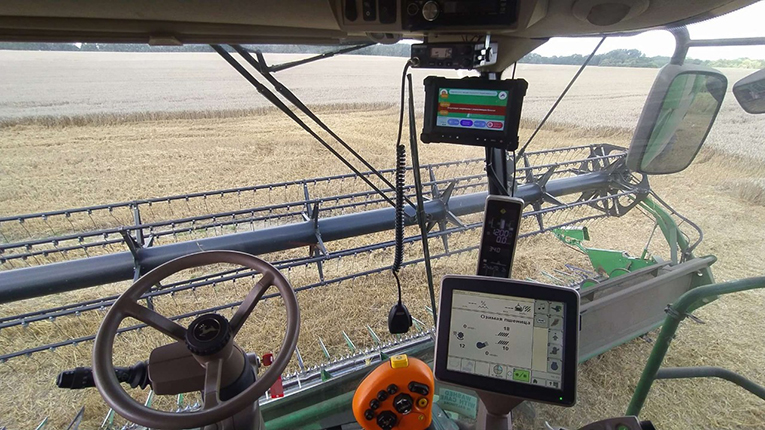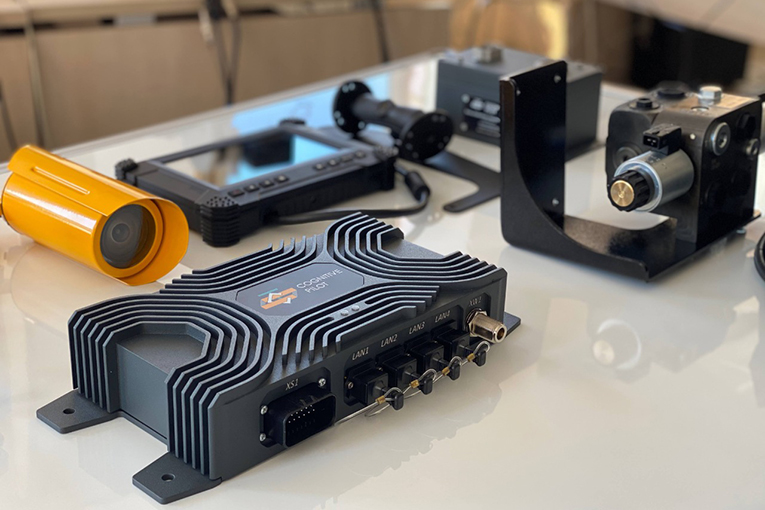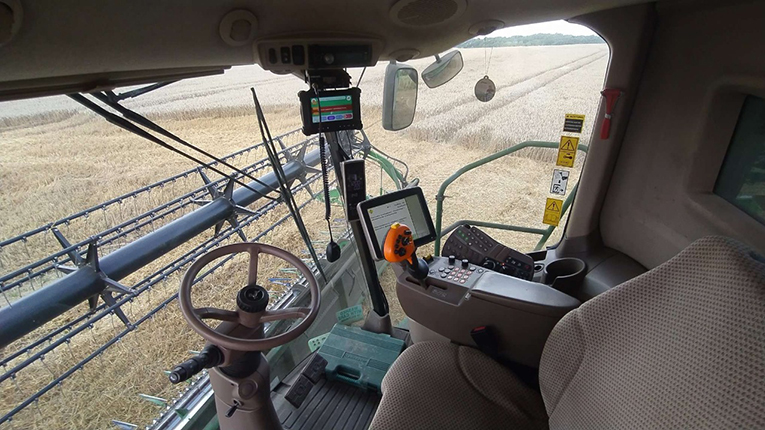Cognitive Agro Pilot: a look into the future
1 September 2020 News from the Company
In order to increase agricultural production, nowadays the use of the latest technologies is a priority. In continuous cooperation with farmers, engineers offer new and effective technical solutions to reduce costs and improve product quality.
An excellent example of such cooperation is the development of the automated control system "Cognitive Agro Pilot" for agricultural machinery by the Russian company Cognitive Pilot. The control system is an intelligent robot designed on the basis of a visual recognition system. The combine is supplied with special equipment consisting of a camera, a control unit with a neuroprocessor, a digital hydraulic block for steering control, sensors for wheel angle measurement, a tablet PC in the cab, and necessary cables and high-pressure hoses for connection to the hydraulics. This enables the machine to measure the field and takes the combine's performance to a whole new level.

Firstly, the "Cognitive Agro Pilot" ensures course accuracy according to the geometry of the edges, swath or row. No GPS connection is required and the road deviation is no more than 15 cm. In other words, the machine takes over a number of tasks that were previously performed manually by the machine operators. This reduces operator exhaustion and the overall influence of the human factor. This eliminates harvest losses and increases the output per shift. In addition, the accuracy of the crossings saves fuel.
"Even the most professional combine operators are not able to drive the machine at the end of the shift with the accuracy offered by ‘Cognitive Agro Pilot’," says Alfia Kayumova, Cognitive Pilot's Deputy Managing Director for Business Development and Investment. "When developing the system, we wanted to transfer some of the tasks of the combine operator to the robot in order to reduce the human factor and thus increase harvesting efficiency".
Through the test runs it was calculated that the harvesting time with the "Cognitive Agro Pilot" can be reduced by an average of 25% compared to the usual "manual" method.
"Another important and useful function of the system is obstacle detection," adds Alfia Kayumova. "The combine announces dangerous encounters with other equipment, people, trees and masts at a distance of 30 to 40 meters. Automatic braking can also be set as an option. In this way, accidents and downtime can be avoided and work can continue even in poor visibility conditions".

An important advantage of the system is the possibility to easily extend its functionality by a firmware update. For example, it is possible to point the camera at the grain discharge and control the process much more precisely without large additional investments.
"The use of Cognitive Pilot is the next step in the development of agriculture towards precision farming", comments Björne Drechsler, Managing Director of Ekotechnika AG. "The new technology will improve farm efficiency and reduce crop losses. It will take another one or two years to achieve maximum adaptation of such systems and their mass application to imported and domestic combines. The market for this technology is large and we will equip up to 10,000 machines in the coming years. The software is stable and the feedback from the mechanics after the first tests is extremely positive. In addition, more highly qualified jobs will be created and the increase in efficiency will mean that wages can be paid in agriculture, as is common in other high-tech industries”.
Ekotechnika has signed a cooperation agreement with Cognitive Pilot on implementation, installation and technical support of “Cognitive Agro Pilot” systems in 35 regions of Russia.
Over the next few years, thousands of agricultural companies will receive an effective tool to reduce costs and improve crop quality
